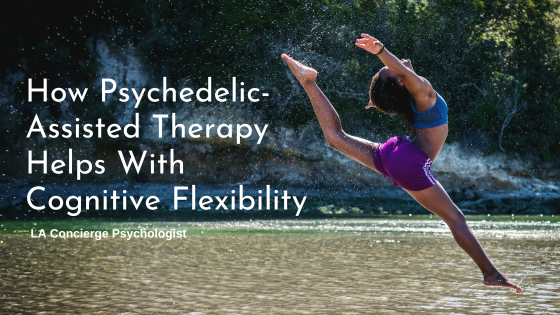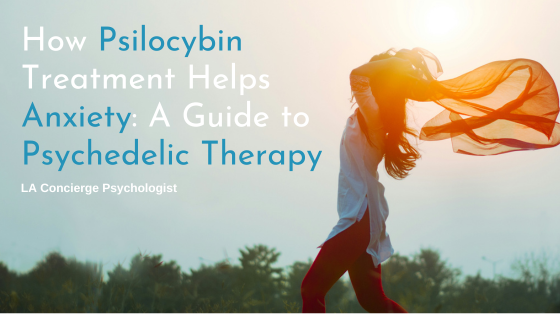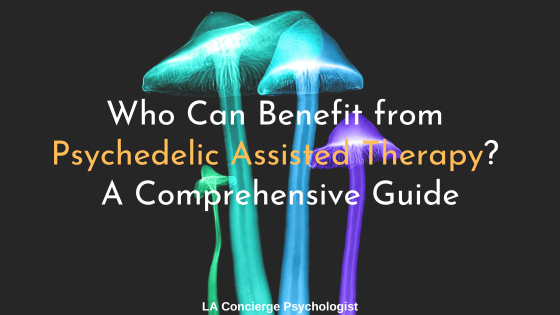Characterized by persistent feelings of sadness, irritability, hopelessness, and/or loss of interest, depression can significantly disrupt people’s daily lives. Conventional treatments often involve long-term medication regimens and ongoing therapy, which, while helpful for many, leave a significant portion of patients seeking alternative solutions.
Psychedelic therapy using psilocybin is a new approach to depression treatment. Far from a conventional pharmaceutical intervention, this naturally occurring compound is reshaping our understanding of psychological healing, offering another option to those who have struggled with traditional treatment methods or have treatment-resistant depression.
This article is going to look at how psychedelic treatment can help people with depression and what you can expect from the treatment process.
How Does Psilocybin Work?
Unlike traditional antidepressants that typically work by modulating serotonin levels over extended periods, psilocybin operates through a fundamentally different mechanism. The compound interacts with the brain’s default mode network, a complex system of interconnected brain regions responsible for self-referential thinking and rumination – often overactive in individuals with depression.
Dr. Roland Griffiths, a pioneering researcher in psychedelic medicine, describes this process as a “window of neuroplasticity[1].” During a psilocybin session, the brain experiences a temporary dissolution of its typical operational patterns, creating an unprecedented opportunity for psychological reset and restructuring via therapy.
This means that patients may see results much more quickly and they can be longer lasting. A recent study showed that psychedelic-assisted therapy produced significant and rapid reductions in depression symptoms[2] among participants who had previously resisted multiple treatment approaches.
The research outcomes are particularly compelling. 71% of participants showed a clinically significant response, with fifty-four percent meeting the criteria for complete remission of depressive symptoms[3]. Perhaps most impressively, these effects were sustained for up to twelve months post-treatment. These results are especially meaningful for treatment-resistant depression, a condition that affects approximately 30% of individuals diagnosed with major depressive disorder.
Types of Depression Treatable with Psilocybin Assisted Therapy
Each individual’s experience with depression is unique, and treatment effectiveness can vary.
It’s important to note that psychedelic therapy is not a universal solution but is promising for certain kinds of depression.
Major Depressive Disorder (MDD)
Clinical research has shown the most substantial evidence for psilocybin’s effectiveness in treating MDD. Many patients describe the experience as a reset button for their mental and emotional state— offering a new perspective on their life, challenges, and potential for healing.
The therapy works by potentially disrupting rigid cognitive patterns that maintain depressive symptoms. Unlike traditional antidepressants that aim to chemically modify mood, psilocybin-assisted therapy creates an opportunity for deep psychological insight and emotional processing effects. Patients often report a sense of connection, reduced rumination, and a newfound ability to approach their challenges with compassion and clarity.
Treatment-resistant depression
Patients who have not responded to traditional antidepressant medications may be helped by psilocybin therapy. Studies have highlighted the potential for psilocybin to provide relief for individuals who have tried multiple traditional treatments without success. The research showed that psilocybin could reset neural networks associated with depressive symptoms, offering a novel approach for those struggling with treatment-resistant depression[4].
Existential depression in patients with terminal illness
A particularly promising area of research involves using psilocybin to address existential distress in patients with terminal illnesses showing significant reductions in depression and anxiety among cancer patients, with improvements in quality of life and reduction of end-of-life psychological distress[5].
Persistent Depressive Disorder (formerly known as Dysthymia)
While research is still emerging, preliminary studies suggest potential benefits for those with long-term, chronic depression. The ability of psilocybin to create neural plasticity and break persistent negative thought patterns shows promise for addressing the deep-seated nature of persistent depressive disorder.
What Does Psychedelic Treatment for Depression Look Like?
Choosing a treatment for depression is a deeply personal journey. Psilocybin-assisted therapy isn’t a one-size-fits-all solution. Before beginning treatment, treatment involves a deep dive into understanding your current psychological state and how depression specifically manifests in your life. Your therapist will identify potential risk factors that could influence the treatment’s approach or effectiveness. This careful screening helps provide a personalized and responsible path to healing.
Here’s what to expect from the process.
1. Professional psychological preparation and support
Before the actual psychedelic session, patients engage in preparatory therapy. These initial session focuses on building trust with your therapist and setting intentions for the psychedelic experience. Patients learn about what to expect during the treatment and address any fears or concerns. This preparation is essential for creating a supportive and safe framework for the upcoming experience.
2. Guided psychedelic sessions for depression in a safe environment
The core of the treatment is a carefully controlled psychedelic session conducted in a comfortable, safe, and controlled environment. Patients ingest a carefully measured dose of psilocybin and are supported by therapists throughout the experience. Carefully selected music to support their inner journey, allowing them to explore deep psychological landscapes with professional guidance. Some clients opt to use an eye mask to further deepen their inner journey.
3. Integration therapy to help process and incorporate new insights
Perhaps the most critical component is the follow-up integration sessions. Multiple therapy sessions in the days and weeks after the psychedelic experience help patients process and make sense of the insights gained. Therapists work with patients to discuss and apply new perspectives to daily life, working through any challenging emotions or revelations. The goal is to support long-term psychological growth and healing.
This approach recognizes that healing is not a single moment, but a journey—and you’ll be supported with compassion and expertise every step of the way.
Safety and Potential Risks of Psilocybin
While promising, it’s important to recognize that these treatments should only be conducted under professional supervision. Your therapist will be trained to manage and identify certain issues that could arise.
This could be supporting you through any temporary distress during the psychedelic experience or managing challenging psychological experiences. They will also be knowledgeable and able to discuss any potential worsening of underlying mental health conditions and interactions with certain medications that you should know about before going ahead.
For example, people with a personal or family history of psychotic disorders are typically excluded from psilocybin studies due to potential adverse reactions.
We Offer Support for People with Depression Who’d Like to Try Psychedelic Therapy
By providing potentially long-lasting relief from depression, psychedelic therapy represents a paradigm shift in mental health treatment, offering a more transformative path to addressing psychological challenges. This holistic approach aims to address the root psychological mechanisms of depression for long-term relief..
If you’re planning on using psychedelics, get the most therapeutic benefits out of your experience and reduce risk by employing the support of a psychedelic assisted therapist. If you’re interested in exploring these topics further with a psychologist who understands, Dr. Lee is here to help. Feel free to email her for more information or to schedule an appointment.



